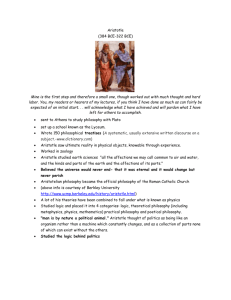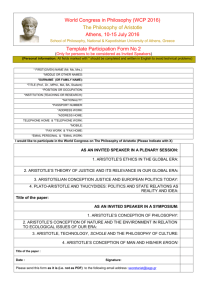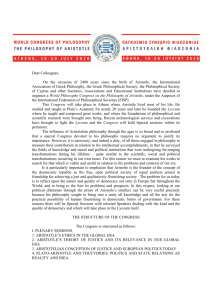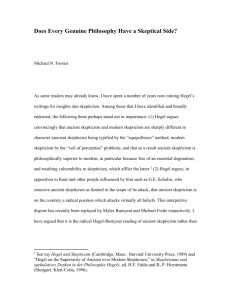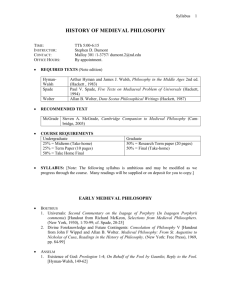Ionian Philosophers
advertisement
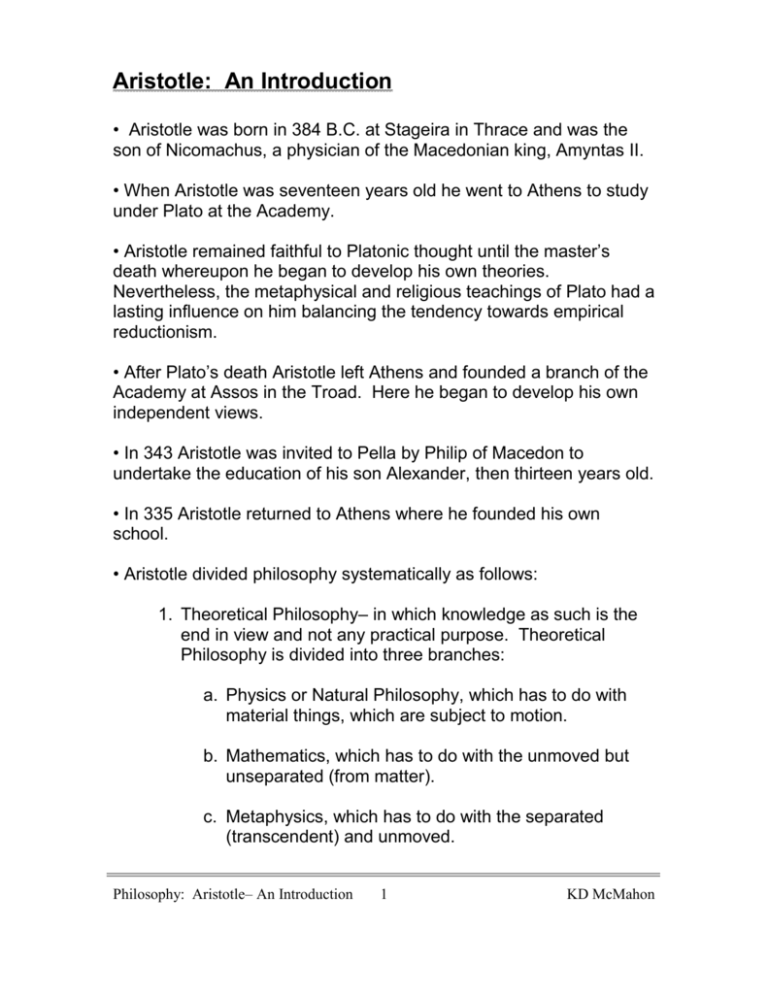
Aristotle: An Introduction • Aristotle was born in 384 B.C. at Stageira in Thrace and was the son of Nicomachus, a physician of the Macedonian king, Amyntas II. • When Aristotle was seventeen years old he went to Athens to study under Plato at the Academy. • Aristotle remained faithful to Platonic thought until the master’s death whereupon he began to develop his own theories. Nevertheless, the metaphysical and religious teachings of Plato had a lasting influence on him balancing the tendency towards empirical reductionism. • After Plato’s death Aristotle left Athens and founded a branch of the Academy at Assos in the Troad. Here he began to develop his own independent views. • In 343 Aristotle was invited to Pella by Philip of Macedon to undertake the education of his son Alexander, then thirteen years old. • In 335 Aristotle returned to Athens where he founded his own school. • Aristotle divided philosophy systematically as follows: 1. Theoretical Philosophy– in which knowledge as such is the end in view and not any practical purpose. Theoretical Philosophy is divided into three branches: a. Physics or Natural Philosophy, which has to do with material things, which are subject to motion. b. Mathematics, which has to do with the unmoved but unseparated (from matter). c. Metaphysics, which has to do with the separated (transcendent) and unmoved. Philosophy: Aristotle– An Introduction 1 KD McMahon 2. Practical Philosophy deals principally with Political Science, but has as subsidiary disciplines Strategy, Economics, Ethical Action, and Rhetoric. 3. Poetical Philosophy has to do with production and not with action and is to all intents and purposes the Theory of Art. Philosophy: Aristotle– An Introduction 2 KD McMahon
